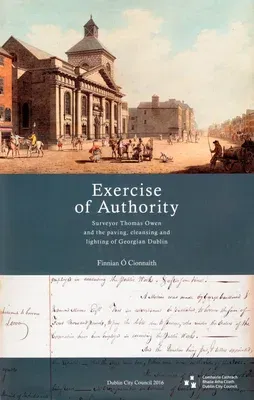From the 1770s to the mid-nineteenth century the commissioners for
paving the streets of Dublin, commonly known as the Paving Board were
responsible for the paving, lighting and cleansing of the capital.
Granted sweeping powers by the Irish parliament, this organisation
tackled problems still familiar to modern Dubliners such as traffic
congestion, street paving, road works, waste removal, public lighting
and anti-social behaviour. They attempted to stamp Georgian conformity
and order on a city trying to shake its medieval image and move into the
modern world. Prior to its foundation, the maintenance of Dublin's
streets was a haphazard affair with the city's patchwork of diverse and
divergent parishes bearing responsibility for services within their
borders. The Paving Board took this misbalanced system and placed the
city under one hierarchical organisation capable, in theory, of helping
the rapidly growing city cope with the changes it encountered. The
legacy of the Paving Board can still be seen today in the setts and
granite curbstones which can be found in Dublin's historic core and yet
this book is the first history of this important body, looking at the
first formative fifteen years of the Board from the viewpoint of one of
its most important officers, surveyor Thomas Owen. Exercise of Authority
is the second in a new series of books issued by Dublin City Council to
explore the engineering history and heritage of the city. This
richly-illustrated book is essential for a complete understanding of
Georgian Dublin. (Series: Dublin Engineering History Series) [Subject:
Irish History]

